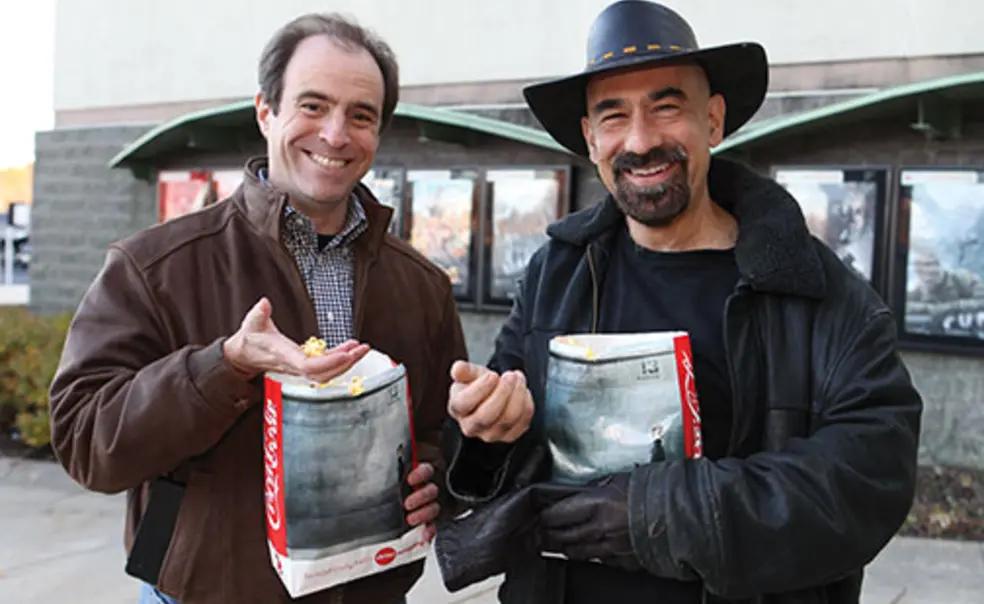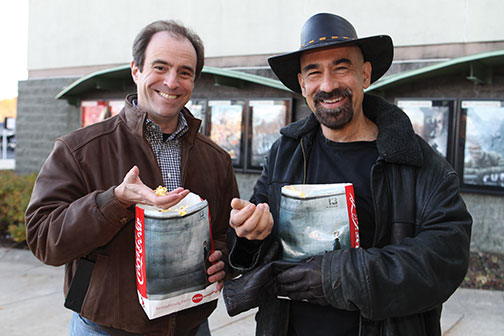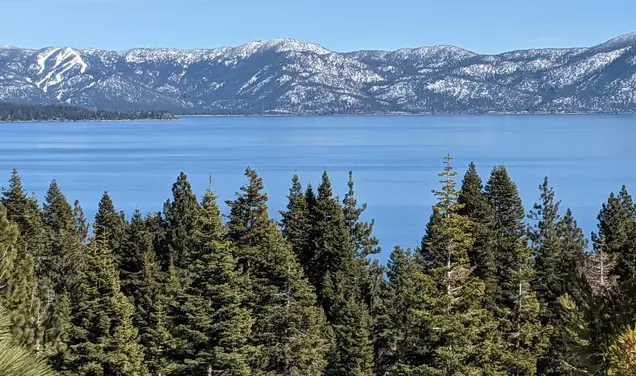Astrophysics: Holes in Space
David Spergel ’82 answers the question: Did Interstellar get the science right?
David Spergel ’82, the Charles A. Young Professor of Astronomy on the Class of 1897 Foundation, is an astrophysicist, author, and MacArthur Fellow, but PAW asked him to put on a new hat: film critic.
It is the first of an occasional feature called “PAW Goes to the Movies,” in which we will invite a faculty member to see a current movie of particular relevance to his or her field of expertise and then play Roger Ebert for us. In this case, we chose Interstellar, the new film about space travel starring Matthew McConaughey and Anne Hathaway. (The film was inspired by Kip Thorne *65, an astrophysicist at the California Institute of Technology.)
Spoilers follow, so read with caution if you haven’t seen the movie.
Interstellar begins a few decades in the future, when climate change threatens to wipe out life on Earth. Cooper (McConaughey), a former astronaut, scratches out a living on one of the few surviving farms. His young daughter, Murph, begins finding unexplained messages scrawled in the dust by gravitational waves, including map coordinates that lead him to a secret facility where scientists have been sending astronauts to other galaxies in search of planets that might sustain human life. They dispatch Cooper and several others through a wormhole, a shortcut through spacetime, to learn if any previous missions have succeeded. Cooper eventually descends into a black hole, where he is able to travel across time and use gravity to communicate with his daughter.
Not only has Interstellar received positive critical reviews, it has been praised for depicting complicated scientific subjects accurately. Did it? In order to find out, senior writer Mark F. Bernstein ’83 bought the tickets and popcorn, and then discussed the movie afterward with Spergel and his wife, Laura Kahn *02, a health-policy research scholar in the Woodrow Wilson School. Here are some excerpts from that conversation:
MFB: The first half-hour of the movie showed the effects of climate change on Earth. Did they get that right?
DS: I thought that was very well done. Climate change doesn’t physically destroy the Earth, but what it does, potentially, is just what the movie shows, which is make it much less habitable for humans. They did a good job conveying the ways in which society breaks down.
MFB: Do we know if wormholes actually exist?
DS: No. Wormholes would take the equations of general relativity and introduce something with negative mass. Now, we don’t know of anything with negative mass, but we didn’t know that there was such a thing as dark energy until 15 years ago. In theory, wormholes are certainly plausible. If you were going to travel to a distant galaxy, they would be the way to go.
MFB: What other scientific concepts did the movie get right?
DS: Think of our universe as a sheet of paper, a three-dimensional surface embedded in a higher dimensional universe. String theory has been an exploration of the way gravity behaves in a higher dimensional universe. We may live in a universe where atomic particles and electromagnetic forces can only propagate in three dimensions but gravity can propagate in other dimensions. They talk about this in the movie, that you could communicate across dimensions using gravity. That’s all built on our current speculation.
MFB: Was the depiction of black holes realistic?
DS: The idea that time slows down as you go into a black hole, that’s all real. They made really high-quality simulations of what the environment is like around a black hole.
MFB: Could there be habitable planets in other galaxies?
DS: We now know that planets are as common as stars. There are probably millions of Earth-like planets in Earth-like orbits in our galaxy alone.
MFB: You didn’t like the ending?
DS: I thought it would have been more dramatic if Cooper had died in the black hole. He is behind the event horizon, where nothing can get out, yet somehow he was able to survive. They didn’t explain that. The movie could have ended 10 minutes earlier and been just as good.
MFB: Was there anything else you didn’t like?
DS: Radiation around a black hole is pretty harsh. It’s not a place where humans could go; the X-rays would cook you. But I think Kip wanted to convey what it would be like to approach a black hole, and if you want to convey that, the humans have to survive. They did capture a lot of black-hole physics.
MFB: Would you want to be Cooper?
DS: You mean, am I physically cut out for space travel? No. I don’t handle variable G-forces well. I am quite prone to seasickness, and I don’t like going on roller coasters. I’d be the guy with a lot of Dramamine. I’ve always been fascinated with space, but I’m more interested in the science than in the exploration side.
LK: Thank goodness.
MFB: Will Interstellar get people interested in astrophysics?
DS: What I hope it succeeds in doing is exciting people about general relativity and the physics of black holes.
MFB: And that we need to do something about climate change?
DS: Oh, that would be even better.
LK: It’s a lot easier to save our planet than to look for another one.














No responses yet